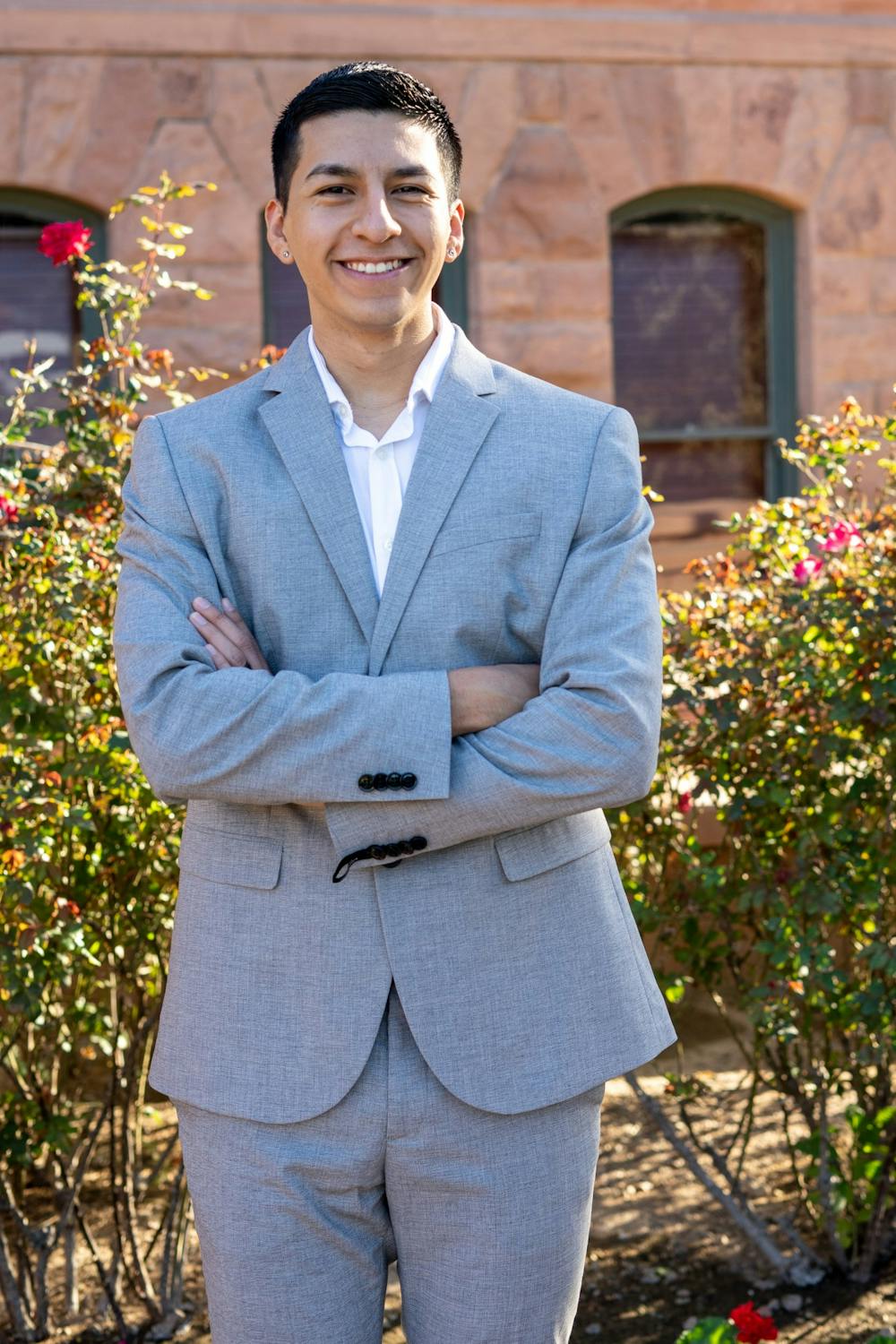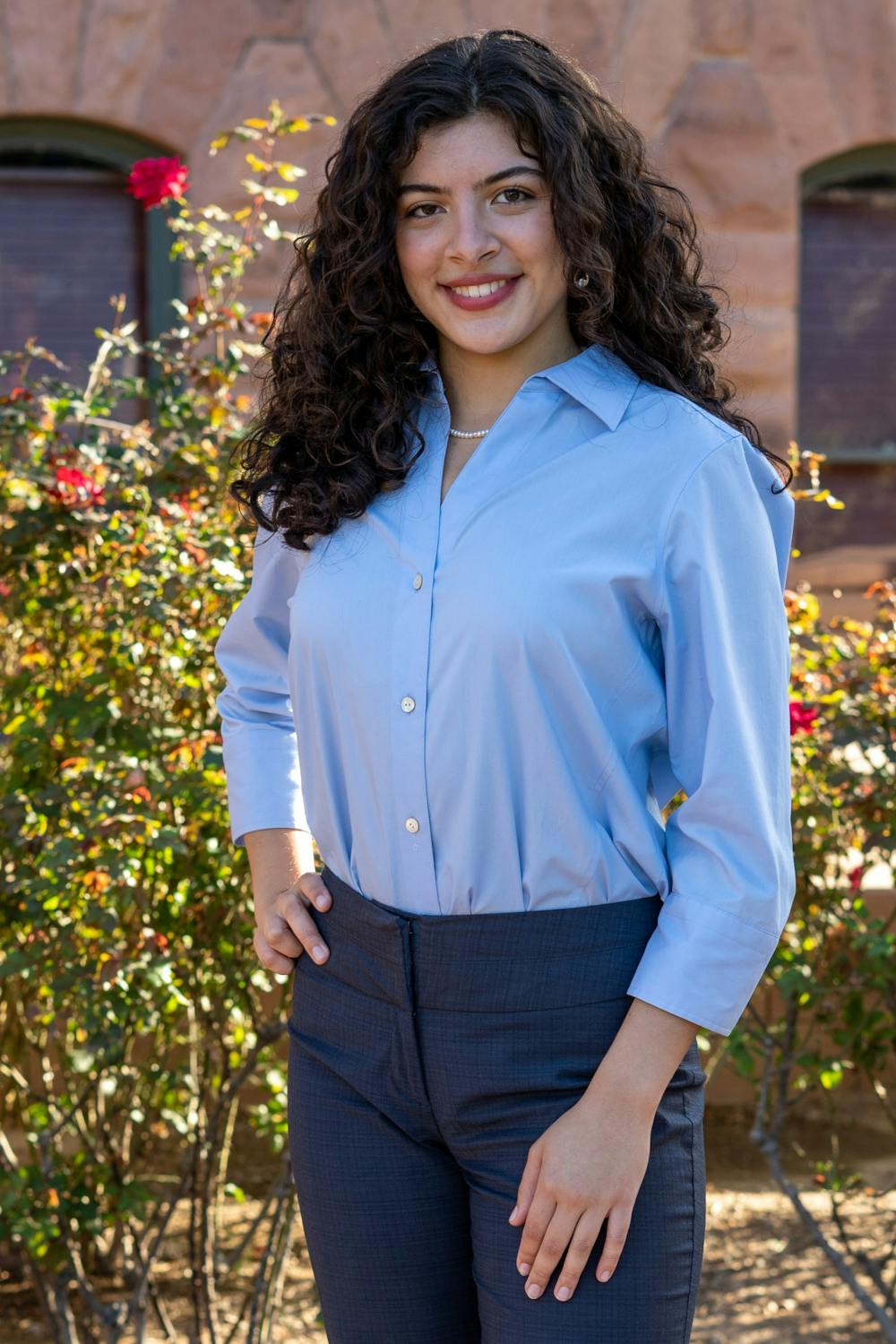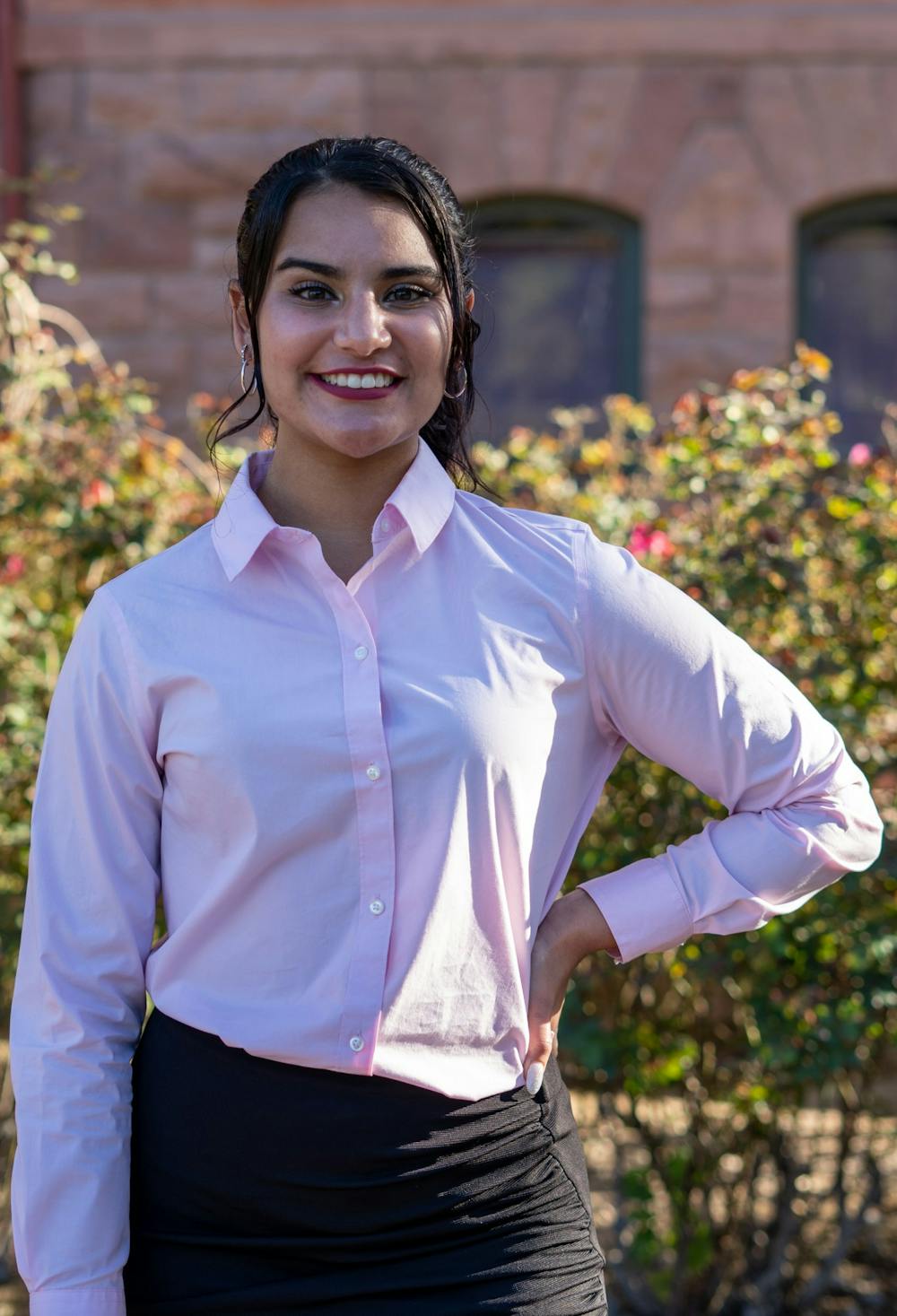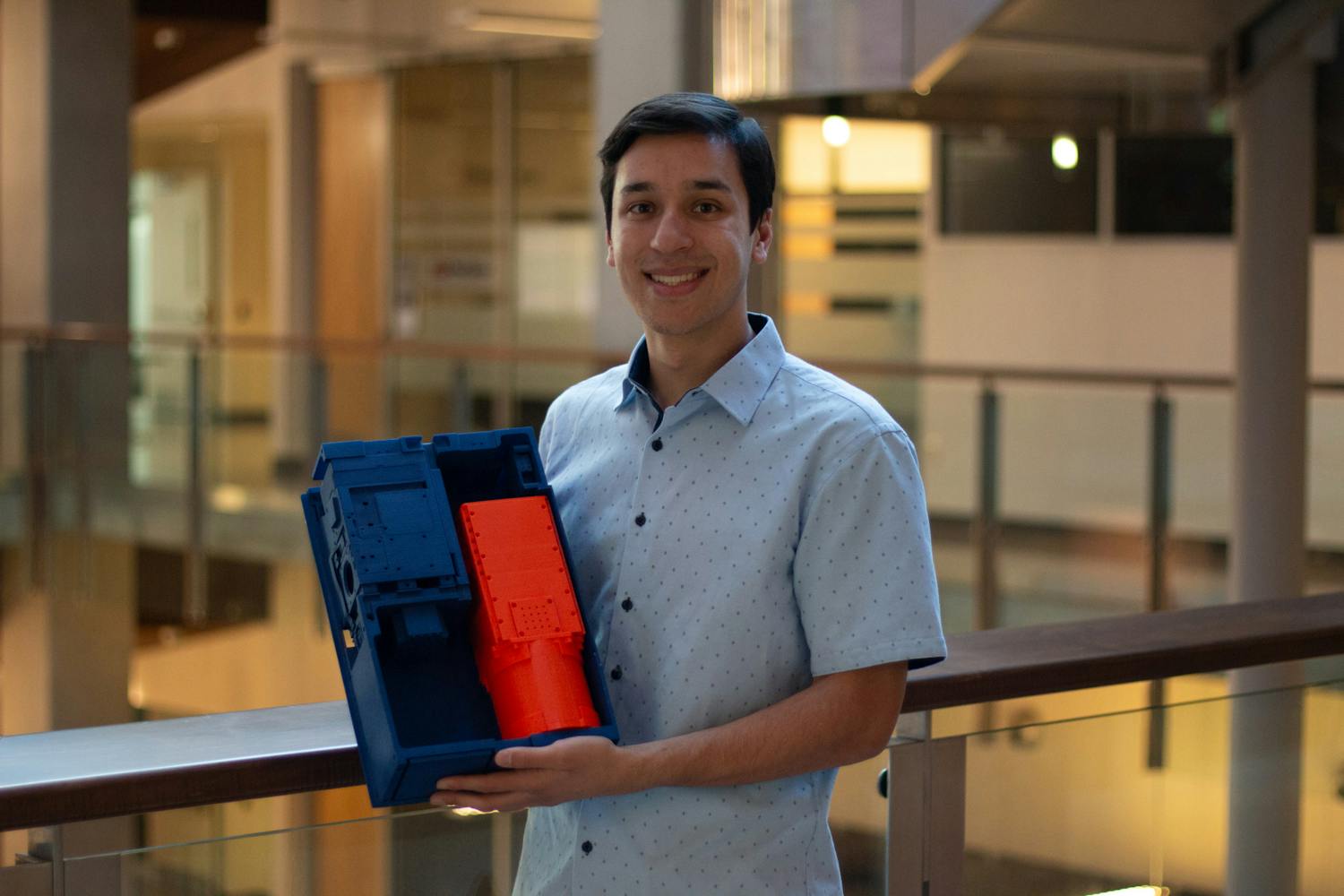Latines accounted for more than 50% of total population growth in the U.S. within the last decade. But at the doctor's office, Latine patients are rarely seen by physicians who look like them.
A new ASU student organization is working to change that.
Students Jasmine Lopez , Valeria Perez and Christopher Hernandez serve on the executive board of the Latino Medical Student Association (LMSA) Plus at ASU, a new club aimed to amplify Latine (the gender-neutral term for Latina and Latino) representation in the medical field and build community among students.
Still in its first year, the club's board didn't have a pre-pandemic model to adjust, and instead, had to build the club up from scratch.
READ MORE: Students prepare to enter health care workforce altered by pandemic
Perez, a sophomore studying biological sciences and global health, said Latines in higher academic medicine are often challenged with imposter syndrome due to "not really having mentors to look up to."
Although Hispanic people are one of the country's populations showing the most growth, 5.8% of the nation's active physicians identified as Hispanic and only 6.2% of students accepted into medical school in the U.S. were of Hispanic or Latine origin, according to 2018 data from the Association of American Medical Colleges.
"We just didn't feel like there was a specific avenue for us to get together and talk about issues that were specific to us," Perez said.
"I remember my freshman year, walking into big science lectures, looking around and being so intimidated because you don't really see a lot of people that look like you," said Hernandez, a junior studying biological sciences and global health. "We knew there were other people out there who could really relate to a lot of the unique experiences that Latinos have as pre-med students."
Hernandez said growing up in an immigrant household exposed him to inequities in health care and inspired him to pursue a career in medicine.
Hernandez is currently pursuing minors in health innovation and Chicano/a and Latino/a studies, as well as a certificate in health humanities and human rights in order to "bridge the gap between these communities and providers."
"I want to be a part of the change and of the next generation of physicians who are going to do their best to eradicate a lot of these health inequities, especially the ones that have been highlighted by COVID," Hernandez said.
Perez has seen the pandemic's toll firsthand as a volunteer at a welcome center for asylum seekers, where she said many have not been able to receive the care they need as the majority do not have access to health care.
Perez and Hernandez are also members of the Refugee Education and Clinic Team, or REACT, a partnership through the University and the Mayo Clinic Alix School of Medicine focused on providing health care resources for refugees and asylum seekers in Maricopa County.
Working as part of the clinical team, the two are currently finalizing plans for the establishment of a clinic on the West campus to be opened in the spring.
"We want to be those people who open the doors for those behind us," Perez said.
LMSA+ offers members a variety of resources from homework help to MCAT exam preparation. Meetings focus on personal and professional development, often bringing in professionals to talk to students about their future careers in medicine.
Members also raise awareness about internships and events for students to participate in.
Above all, the work through the club is always underlined with a sense of empathy and never short of the "échale ganas" spirit, similar to the English language's give it your all attitude.
"We're all working together. We're here for you, to support you," Perez said. "You will always have people to back you, and if it's not your family, if it's not your teachers, it'll be us."
When she talks about the empowerment of Latines, Lopez, a sophomore studying biological sciences and global health, said she thinks of her grandmother, who immigrated to the U.S. from Durango, Mexico.
As a worker in California strawberry fields, Lopez's grandmother has always been a powerful portrait of the possibilities that come with hard work.
"I keep my family and their experiences in mind and how they might not have had the same opportunities as other Americans," Lopez said. "That is a big part of why I advocate for increased representation of racial minorities in medicine."
Hernandez remembers his mother experiencing arm pain that she’d brush off as soreness since she had worked cleaning hotels, houses and apartments for the past couple of years.
At visits to the doctor, she would often not communicate her symptoms to the physician, worried she may be misunderstood, he said.
"She's only one immigrant of many that work arduous jobs," Hernandez said. "When patients identify with their doctor's position, it's easier for them to open up because there's that instant connection."
"I think that for a lot of us, whether it's us or people in our community, we have friends and families that have been affected by the disparities in healthcare that affect Latinos and, in general, people of color," Hernandez said.
In cover letters and resumes, physicians are often challenged to "find their why," or the inspiration that drove them to pursue a career in health care, Perez said.
"I find my 'why' in the Latino community," she said. "For me, it's that connection of talking to someone that feels like home, talking to someone that feels like family."
Reach the reporter at sreyes23@asu.edu and follow @r_salma_ on Twitter.
Like The State Press on Facebook and follow @statepress on Twitter.
Continue supporting student journalism and donate to The State Press today.







